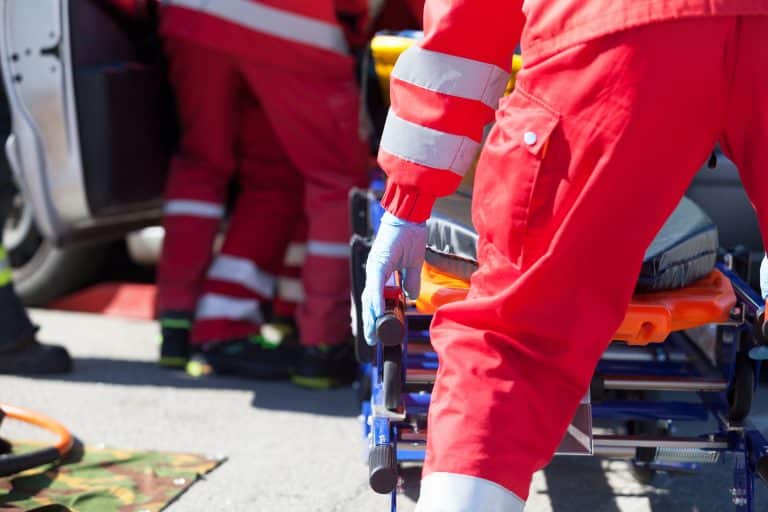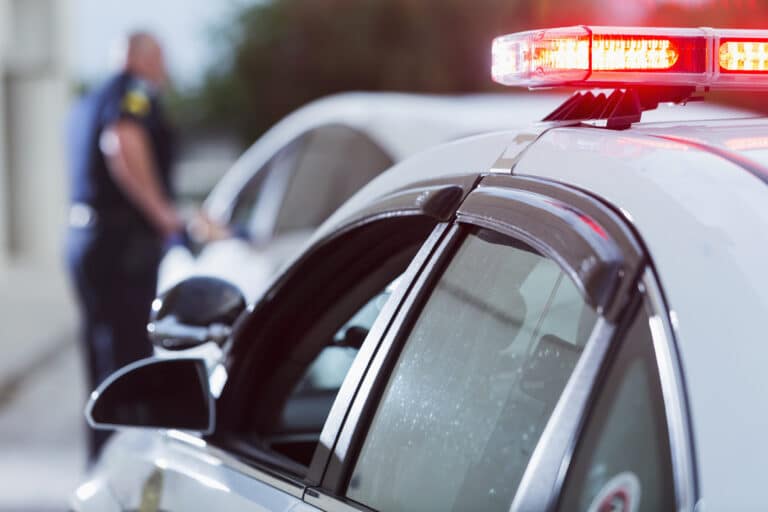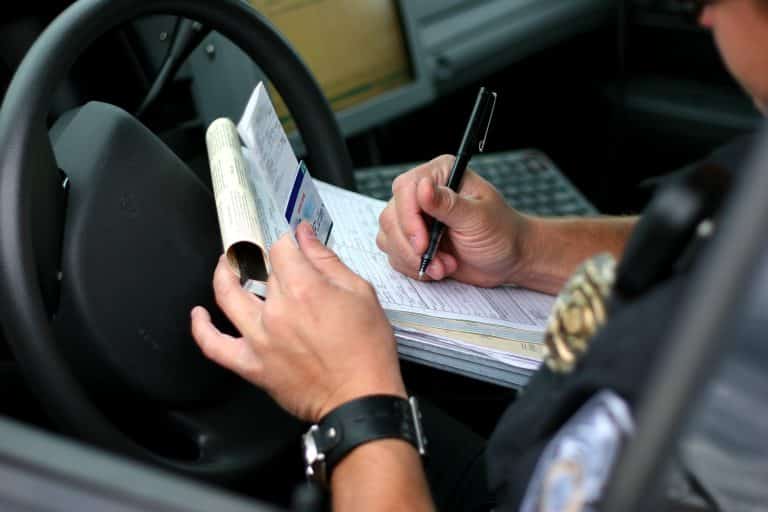Getting into a car accident is stressful for anyone, and it can be hard to know what to say or do. Tempers can flare, or you may be tempted to apologize if you think you were at fault.
However, the fact is that you can significantly affect your civil (and sometimes even criminal) liability if you say the wrong thing after an accident. The attorneys at Rosenblum Law have decades of experience representing people who are involved in car accidents. If that is you, contact us as soon as possible. In the meantime, read this article to learn what to say and not say after an accident.
What to Say
First, it is important to note that any accident involving personal injuries and/or damage to any one person’s property totalling more than $1,000 needs to be reported to the police. According to police officer Kent Ng, if the accident does not meet the above criteria, it is OK just to exchange information with the other driver. In this situation, it is best to say as little as possible other than to provide your name, address, and insurance.
If the accident is serious enough to be reported, the police will come to investigate and take the parties’ statements. It is helpful if all parties give a factual recounting of what happened as they see it, as this will help the officers do their job.
However, Ng said none of the parties in an accident is required to speak to the police. “You don’t have to talk at all,” he said. “You can just say you want to call your lawyer. It’s up to the individual person if they want to talk about it.”
What Not to Say
If someone does choose to speak to the police and/or another party to the accident, there are some important guidelines to follow. Failing to do so could result in an admission of guilt or otherwise complicate your case in any settlement negotiations or lawsuit.
Do Not Apologize or Admit Fault
This is the most important rule. It is natural for someone to want to seek reconciliation, especially if they think they are to blame. However, after an accident, under no circumstances should someone apologize, admit they were at fault, or say anything along the lines of “I didn’t see you.” Breaking this rule can and will be viewed as an admission of guilt, and it will make it harder to negotiate with the other party’s insurance company. It also could result in a traffic ticket. Plus, the admission might not even be accurate.
“If you feel you’re at fault, I wouldn’t admit to anything,” Ng said. “You have to realize that you might be held liable. You’re nervous, and you don’t want to lie, so you can just say ‘no comment’. “Just say what happened. That’s the best way to talk to law enforcement, because it’s not admitting guilt. If you decline to talk to the police at all, you can always amend your report after talking to your lawyer and explain why you did not comment initially, such as you were in shock or did not know what to say.”
Do Not Speculate About the Cause of the Accident
It is the police officers’ – not the parties’ – responsibility to determine the cause of the accident. If a party speculates about the cause, they might make inaccurate statements that could damage their claim or make it seem like they were lying, when in fact they were just mistaken.
Do Not Accept a Settlement Offer Without Consulting Your Attorney
The other party’s attorney might call with a settlement offer after the accident. The person to whom the offer is being made should reject it out of hand until they have a chance to talk to their own attorney, who will advise them about what their case is worth, what a reasonable offer would be, and their chances of a favorable outcome if the case goes to trial.
Moreover, some injuries like whiplash are not always immediately apparent, and an accident victim will not have a clear idea about their medical expenses right away. As a result, it is impossible to determine if a quick offer from another party’s insurance company is fair.
Do Not Say ‘I’m OK’
Along the same lines, a party to an accident should avoid telling the other driver that they are OK. Injuries might not show up until days or even weeks later, so it is critical to avoid downplaying any potential injuries. Instead, seek medical attention right away, and go to the doctor again if new injuries arise. Have the medical provider document every injury, treatment received, and the cost of treatment.
Do Not Say “This is my official statement”
Even if someone chooses to talk to the police during an accident investigation, they should never say that anything is their “official statement.” An official statement is different from an unofficial account provided to law enforcement after the accident happens. In particular, an unofficial statement cannot be used in court, settlement negotiations, or other official proceedings, but an official statement can. That is why it is important to work with an attorney on an official statement before presenting it.
Do Not Comment About the Accident on Social Media
Anything that someone says about an accident on social media can be used against them by another party. For example, if someone’s account of the accident on social media differs from what they told the police, they could be accused of lying. Likewise, someone who posts images of themselves attending an event after the accident could be considered evidence that the person’s injuries are not that bad, which would complicate any future claims.






